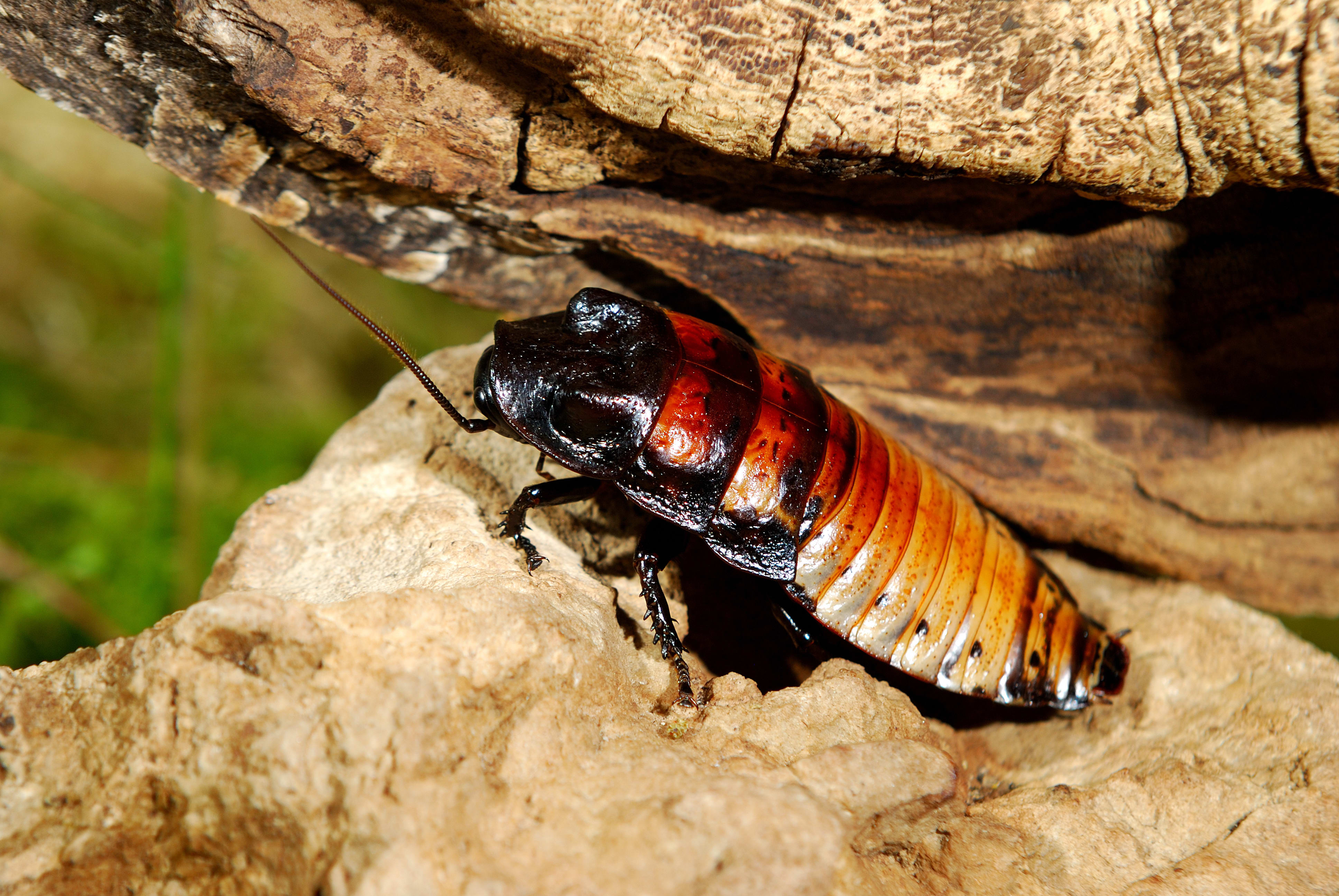Facts About Madagascar Hissing Cockroaches
Madagascar Hissing Cockroaches are native to Madagascar, the fourth largest island in the world located off the east coast of Africa. They are a food source for larger animals such as lemurs, birds, and lizards.
They are wingless, unlike most cockroaches, and have a shiny brown oval shape with a single pair of antennae. The males have large horns giving them an impressive appearance. They use their horns in aggressive encounters with other males during mating season.
These cockroaches are known for the hissing sounds they make by forcing air through respiratory openings (spiracles) on their abdomen. They make hissing sounds when they feel threatened and need to raise an alarm. The males also hiss as a mating ritual to attract females.
Do They Make Good Pets?
Their large size (2-3 inches) and relative tameness of the Madagascar hissing cockroach make it an ideal insect pet. They are easy to care for and require minimal maintenance.
These insects are often used in classroom environments to study and observe, providing fascinating insights about the insect world.
Owners should provide their pets with a living habitat that is dark, moist, and secluded. Peat moss or wood chips will provide them with places to burrow.
Do Madagascar Hissing Cockroaches need heat?
Their natural habitat is the tropical rainforest of Madagascar, therefore their aquarium will need to be maintained at a temperature range of 77 - 82 degrees Fahrenheit during the daytime and mid to high 70 degrees at night. They also need to be kept at moderate to high levels of humidity by misting the aquarium with water daily.
They are cold-blooded insects and may require an extra heat source to maintain their proper metabolism. You can use a synthetic hot rock in their habitat, allowing the insects to properly regulate their body temperatures.
What does a Madagascar hissing cockroach eat?
These roaches are herbivores feeding primarily on fruit or plant materials. Owners can provide their pets with a diet consisting of dark greens, such as pesticide-free romaine lettuce and dandelions. They also like to feast on rotten fruit, such as apples, bananas, and oranges.
Can Madagascar hissing cockroaches live alone?
In captivity, the Madagascar Hissing Cockroach can live for up to 5 years. They can live alone, or they can live as a colony. When living in colonies, this species exhibits a social hierarchy that is interesting to observe. Males will establish and defend territory on a rock or other similar structure for several months.
If you have multiple roaches you will need to provide enough space for them as they propagate. Females carry their eggs inside their bodies in a cocoon-like egg case, called an ootheca) and can bear as many as 60 nymph roaches.
Our exotic companion animal vet can help answer your questions about owning exotic pets. Contact South Wilton Veterinary Group today!
Looking for a vet in South Wilton?
We're always accepting new patients, so contact our veterinary hospital today to book your pet's first appointment.
Related Articles View All
C-Section for Dogs: Everything You Should Know
Our South Wilton vets share some information about c-sections in dogs, when they might be needed, and what you can expect.
Enucleation: Eye Removal in Cats & Dogs
Learning that your cat or dog needs eye removal surgery can be upsetting, and you'll probably have many questions. Our veterinarians in South Wilton explain pet eye removal, recovery times, potential complications, and more.
Understanding Blood Tests for Dogs
Dogs and cats often require diagnostic blood tests to reveal vital health information about underlying health conditions. In this post, our veterinarians at South Wilton explain the significance of these tests for pets.
What Are the Symptoms of a Spider Bite on a Dog?
In some cases, the spider bites our South Wilton vets see on dogs cause serious symptoms that necessitate immediate medical attention; however, most spider bites on dogs cause minor irritation but are generally harmless.



